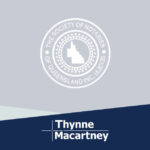The Retail Shop Lease and Other Commercial Lease (COVID-19 Emergency Response) Regulation 2020 brings the principles in the National Cabinet’s mandatory code of conduct for SME commercial leasing principles for COVID-19 into legislative force in Queensland.
The Regulation is scheduled to remain in force until 31 December 2020.
What leases does the Regulation apply to?
The Regulation applies to ‘affected leases’. To be an ‘affected lease’, all of the following must be satisfied:
- the lease must be a retail shop lease (within the meaning of the Retail Shop Leases Act) or a lease to a business or not for profit organisation;
- the lessee must have an annual turnover of less than $50 million; and
- the lessee or an affiliated entity (one responsible for employing staff for the business) is eligible for the Federal Government’s Jobkeeper Scheme.
The meaning of ‘lease’ is defined widely to include subleases and licences so that franchise arrangements fall within the concept of an affected lease.
Lessee protections
The Regulation prevents a lessor taking enforcement or recovery actions against a lessee, including:
- recovery of possession;
- termination of the lease;
- calling on security; or
- charging interest on unpaid monies.
It also stays some actions that have already been commenced.
The parties can however, enforce the terms of agreements made in relation to COVID-19 or take actions on a ground that is not related to the effect of the COVID-19 emergency.
Obligations of the lessor and lessee
Both parties must cooperate in good faith to mitigate the effect of COVID-19 on the parties.
The key features of the Regulation are:
- Rent cannot be increased. Scheduled rent reviews may still be calculated but the reviewed rent may not be charged until after 30 September 2020.
- Either party can initiate a renegotiation of the rent and other conditions by submitting a written proposal to the other.
- As soon as practical, the parties must exchange relevant information including supporting material such as accurate financial information, evidence the lessee is a qualifying entity and details of the steps taken to mitigate the effect of the COVID-19 emergency.
- The lessor has 30 days to offer a rent reduction or other change to the lease conditions.
- The offer must relate to all of the rent payable under the lease during the period 29 March to 30 September 2020 (Response Period).
- If the rent is to be reduced then at least 50% must be offered as a rent waiver.
- Any rent which is to be deferred is to be repaid on an interest free basis over a 2 to 3-year period which must not commence before the end of the Response Period.
- Security deposits can be held after the end of the lease as security for payment of deferred rent.
- Factors to be considered in determining a rent reduction include:
- Reduction in the lessee’s turnover;
- The ability of the lessee to pay the rent;
- The lessor’s financial position; and
- Any reduction or waiver of outgoings (eg land tax, rates or insurance premiums) that otherwise forms part of the amount payable by the lessee under the lease.
- Following receipt of the lessor’s offer, the parties must cooperate and act reasonably and in good faith to negotiate a reduction in the amount of rent payable under the lease during the Response Period.
- The reduction in rent and any other agreed terms should be recorded in writing.
- Either party can ask for an agreement to be revisited if the circumstances under which an agreement was reached change in a material way.
- Where a rent concession is granted, a lessor must offer the lessee an extension of the lease for the period of the concession, unless the lessor has an existing inconsistent legal commitment for the premises or has an intention to use the premises for another commercial purpose.
- If the lessee is unable to operate from the premises during any part of the Response Period then the lessor may reduce services to the premises to the extent that is reasonable in the circumstances.
Disputes
A dispute resolution mechanism where the parties cannot reach an agreement is set out in the Regulation. This also applies to small businesses (sole trader or those with less than 20 staff) that do not otherwise qualify for the relief specified in the Regulation.
These dispute provisions apply despite any dispute procedure provided for in the lease or under the Retail Shop Leases Act.
The parties must first attempt the resolve the dispute. Failing which the small business commissioner is to refer the matter to mediation within 7 days. If the dispute is not resolved within 30 days then the dispute can be referred to QCAT for resolution.
Contracting out
The Regulation is designed to provide a framework for reaching a workable solution.
It is not a straitjacket and the parties are free to agree an alternative response to the COVID-19 emergency but it is open for any party to reopen any agreement as circumstances change.
For more information, contact Cameron Graham on (07) 3231 8858 or email cgraham@thymac.com.au.




